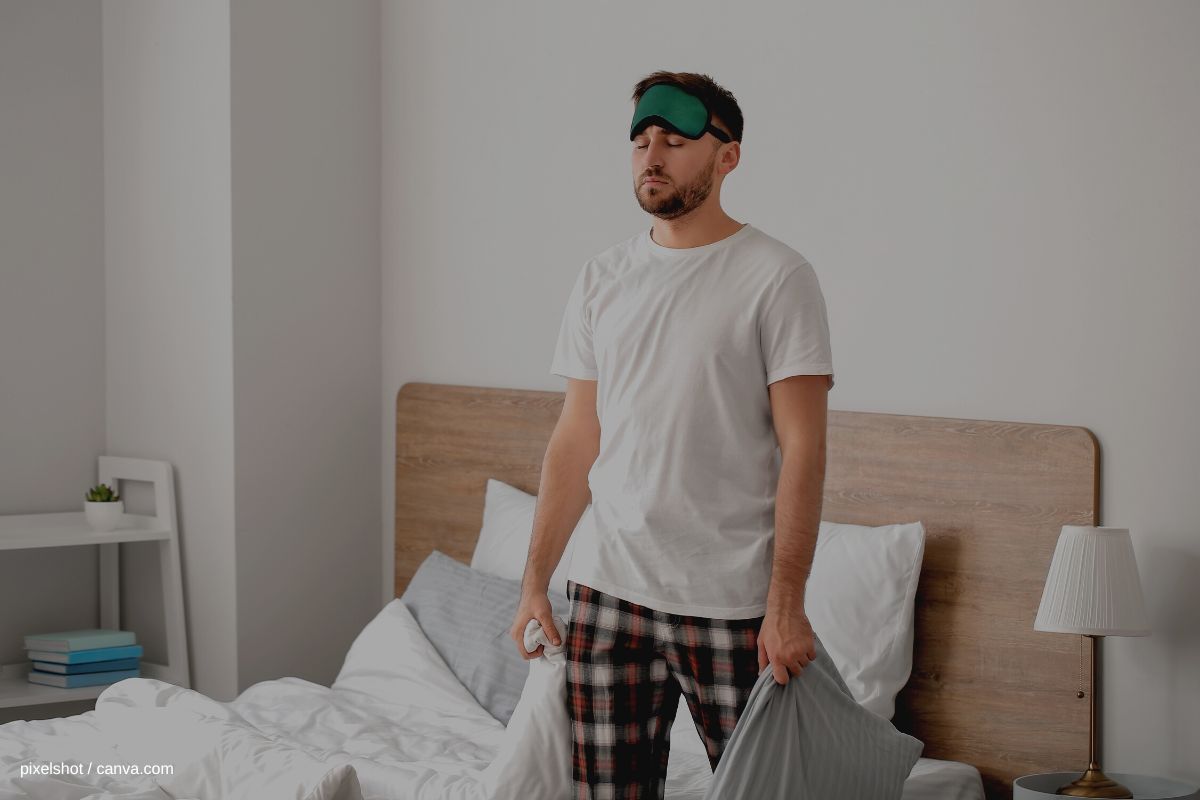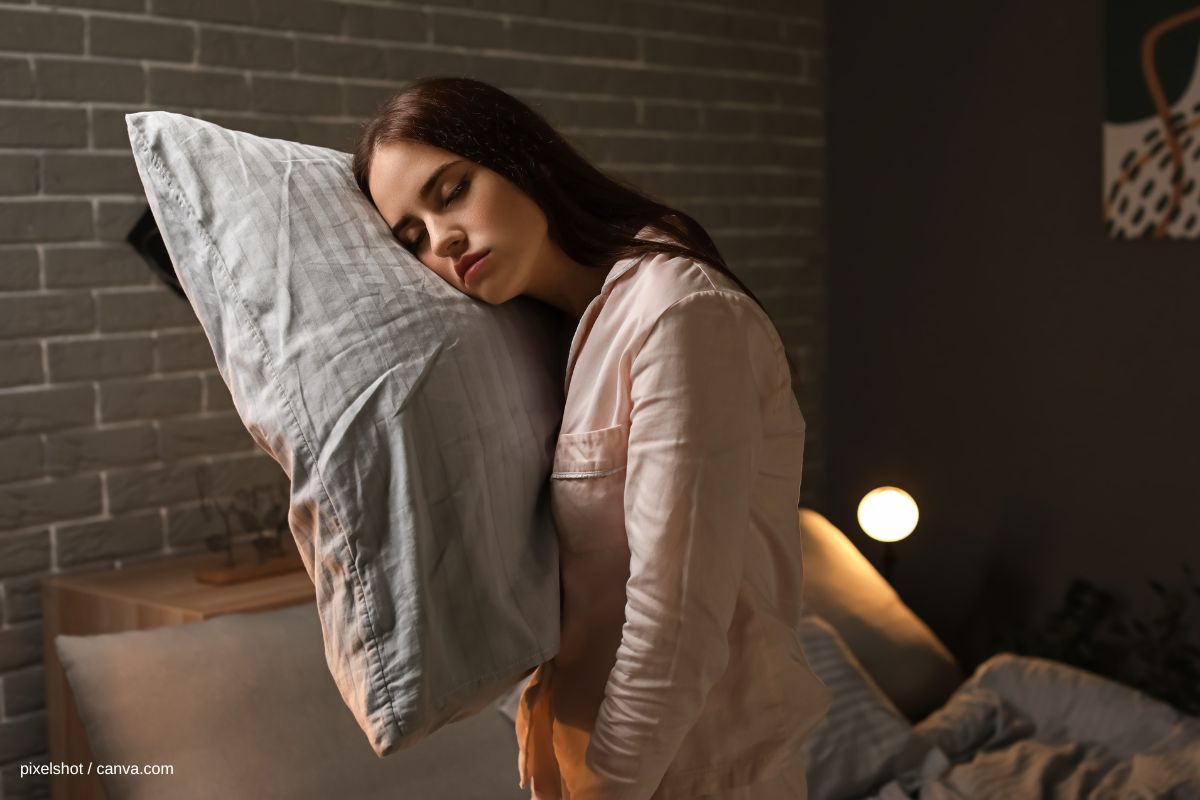What causes sleepwalking?

Sleepwalking is an exciting phenomenon - especially because the exact causes are still controversially discussed today. Those affected are in a twilight state in which they are able to perform complex actions despite their consciousness being "switched off". To be able to experience signs of sleep and wakefulness simultaneously defies all logic. And this is exactly what makes the phenomenon a fascinating object of research. Here you can find out which triggers promote the nocturnal excursions and which measures will help you regain a better quality of sleep.
Sleepwalking – A phenomenon with unexplained causes?
A sleeping person who leaves their bed and wanders around the house with their eyes closed - for outsiders, sleepwalking is a highly mysterious occurrence. Yet it is the contradiction of being asleep and yet somehow awake at the same time that inspires us to want to find out more about the phenomenon. The fact that sleepwalking still cannot be linked to clear causes makes the whole thing even more interesting.
It is also fascinating that not all people are equally susceptible to the phenomenon. Sleepwalking practically never occurs in adulthood - and if it does, there are usually other causes behind it than there are in children. The latter are disproportionately affected by the unwanted nocturnal excursions. An explanation for this is easily found: Unlike adults, children's brain functions are not yet fully developed. During sleep, they are therefore more susceptible to disturbances. As far as gender is concerned, men and women are affected by sleepwalking in roughly equal numbers.
Do sleepwalkers notice their nocturnal excursions?
In science, it is assumed that a neurological imbalance is one of the most likely causes of sleepwalking. This would also explain why the phenomenon occurs so often at a young age, as the brain of children is still developing. One fact, however, is particularly perplexing: those affected have no idea themselves what happens to them during sleep. The next morning, they have no recollection of their nocturnal excursion - and may be quite disturbed when told about it.
How can it be possible that a sleepwalker cannot remember actions that they themselves have performed? Something must be going on during sleep that changes the state of consciousness of the person. To understand what exactly distinguishes a sleepwalker from a normal sleeper, we must first understand how the human sleep cycle works.

What exactly happens to the body during sleepwalking?
Sleep has many faces. Normally, our nocturnal rest proceeds in a set pattern: A sleep cycle is characterized by four different sleep phases, during which complex processes take place in our body. First, our eyes gradually fall shut in the falling asleep phase before we drift into a light sleep. This is later replaced by a deep sleep phase that transitions into so-called REM sleep or dream sleep.
The deep sleep phase in particular is of crucial importance for physical recovery. Various regeneration processes are initiated and give the immune system the opportunity to strengthen the body's defenses and defend itself against impending diseases. Phenomena such as talking in sleep or sleepwalking occur exclusively in deep sleep. But while most people slip from deep sleep into REM sleep, a significant difference occurs in sleepwalkers: they wake up from deep sleep in the first third. But this waking up has nothing to do with what we normally associate with the word. Rather, they are only partially awake, their consciousness remains in rest mode while any motor functions are working. What this means in translation is that even though sleepwalkers are not aware of what they are doing, they can perform complex actions in this mental stupor. Often, sleepwalking is triggered by a simple wake-up stimulus like street noise, but can this really be the only cause?

What are the causes of sleepwalking?
Researchers studying the phenomenon of sleepwalking have not yet been able to identify the clear causes. However, scientists have been able to approach the phenomenon by uncovering certain key stimuli. These are thought to be able to trigger sleepwalking in people who are prone to it.
- Loud noises such as street noise, music, the snoring of the bed partner
- Physical illnesses such as fever – especially in children
- Physical discomfort and pain
- Drinking alcohol before going to sleep
- Taking certain medications
- Stress and psychological tension
- Lack of sleep
- Genetic predisposition
Is sleepwalking curable?
For many people who had problems with sleepwalking in childhood, the phenomenon subsides, and they become normal sleepers again in adulthood. And that is reassuring, since there is still no cure for sleepwalking. However, some of the triggering factors can be counteracted. One can even take very good precautions against the triggers.
- Sleepwalking occurs during deep sleep. Therefore, avoid factors that deepen sleep. Alcohol is therefore taboo as a nightcap.
- Take care of better sleep hygiene. Before falling asleep, for example, a pleasant bubble bath helps you to wind down and get your body in the right mood for sleep.
- Avoid stress wherever possible. If too much mental baggage has built up, it's worth practicing relaxation methods such as meditation, yoga, or PMR before bed.
- Sleep rituals have been shown to help improve sleep quality. a couple of exampes are to keep a gratitude journal or listening to a sleep podcast before you go to bed?
Once you get sleepwalking under control, the quality of your sleep will automatically improve and you can enjoy better rest. However, to keep sleepwalking safe until then, it's important to secure your sleep environment. Remove tripping hazards and secure windows and doors. If severe psychological stress is a possible cause of sleepwalking, you should seek professional support. Doctors or therapists can help you with a suitable therapy - and you can finally fall asleep again with peace of mind.
Photo credits:
pixelshot / canva.com
